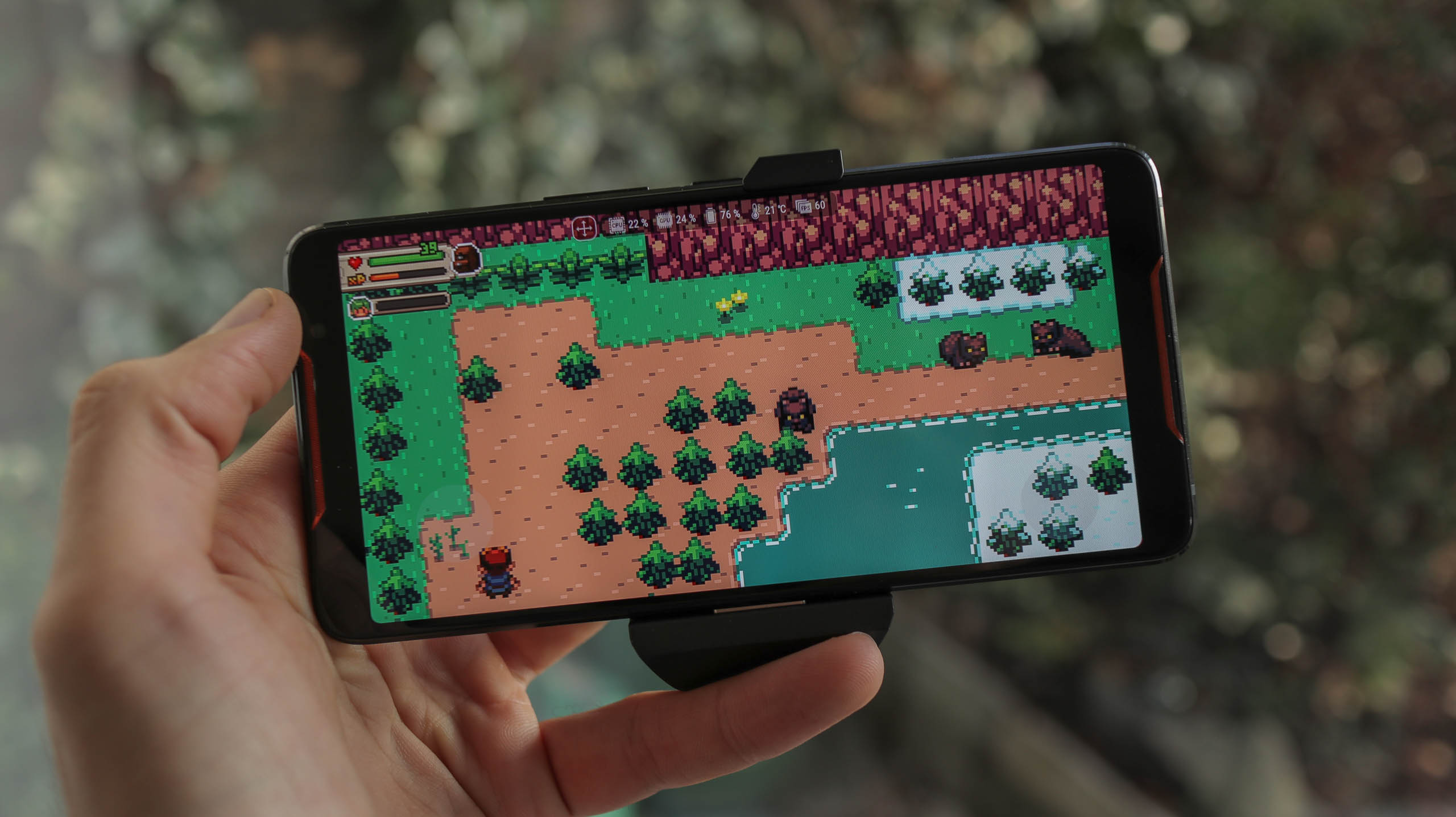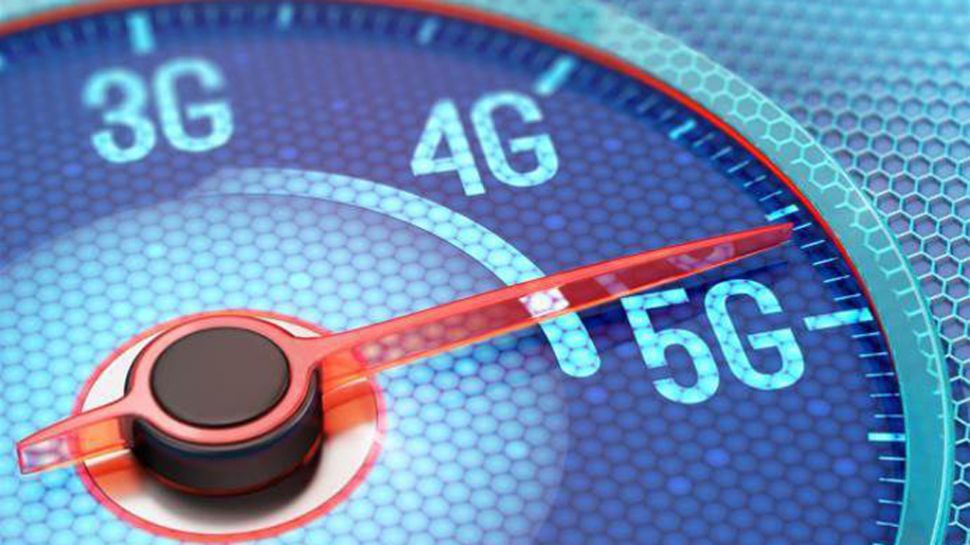This is how 5G will take mobile gaming to the next level
Console-grade graphics on the go thanks to 5G? Surely not!

If you’re not sure what 5G is, in a nutshell, it’s the next evolution of mobile internet.
With download speeds that beat most home broadband transfer rates, and 4G speeds by around ten times, speed is definitely the name of the game when it comes to 5G connectivity.
Faster mobile internet is only one of the benefits of 5G, though. It will also result in less congested networks.
If everyone is downloading a web page over 5G, it’ll take less time than it would over 4G. That means that one web page download clogs up the network bandwidth for less time (because it downloads faster) – and that means less congestion.
In addition, 5G was built with more ‘lanes’ than 4G, so can handle peak hour data usage that little bit better, so users should be able to enjoy a more consistent service.
This will also lighten the load placed on 4G networks as fewer users will be downloading and uploading on 4G, given the fact some will be on 5G. This ultimately means even non-5G users will benefit from it – so that Candy Crush commute home will leave you waiting even less, whatever your network.

The obvious benefits for mobile gaming
Given what we know about 5G so far, there are some very obvious ways it will benefit mobile gamers.
Sign up for breaking news, reviews, opinion, top tech deals, and more.
For starters, game downloads will be quicker.
With games like Injustice 2 and Valkyrie Profile clocking in at over 1GB, most gamers today will likely wait until they’re connected to a Wi-Fi network before downloading them. This is primarily to save data, but another factor is that over 4G, the download takes longer, and would wreak havoc on your phone’s battery.
5G looks set to increase the size of data plans too. Take EE for example. It currently offers 5G with two data packages – 30GB per month, or 60GB per month. The 4G packages meanwhile, range from 250MB through to 50GB per month.
With 5G resulting in more data and faster downloads, a 5G gamer dropping 1GB and a few seconds of time spent downloading, shouldn’t leave their data plan or battery breaking a sweat.
Many mobile games today also require an in-game internet connection too. Tracking your score, fleecing you for gems and other in-app purchases, or logging you into a battle royale arena to compete against other mobile warriors Fortnite-style – all these require a connection, and have historically resulted in long wait times.
In a nutshell, the main, obvious benefit of 5G and more speed can be summed up in three words: no more waiting.

Latency part one: multiplayer mayhem
Lower latency is a less obvious benefit of higher speed mobile internet, but its implications are game-changing.
Latency is the time between an action, and that action being registered. So, when you write with ink, the latency would be the time between the ink leaving the pen and marking the paper. When it comes to online gaming, latency is the speed with which a command is registered and actioned on your screen. The lower the latency, the better.
5G will mean incredibly low latency gaming, which will be handy when multi-player blasting, especially as mobile gaming tournaments and eSports continue to scale new heights of popularity, and a focus on high-performance connectivity becomes a differentiator between champions and runners up.
Latency part two: the Netflix of gaming
If you think back to the rise of 4G, it coincided with Netflix hitting stratospheric levels of adoption – and that’s no coincidence. Wireless watching gained popularity when great quality content became ‘streamable’ over fast mobile internet speeds with 4G.
What’s that got to do with gaming and 5G? Streaming games take up more bandwidth, but 5G speeds are fast enough to support it.
There are two ways of streaming games. The first involves streaming from one device, whether it’s a console or a PC, to another. The brunt of the processing is undertaken by the primary device, which plays the game. The secondary device just receives a video feed and registers controller input commands.
Currently, PS4 Remote Play and Steam Link are available for mobile and let you stream from your console or PC to your Android or iOS device with ease, provided your connection can hack it.
The second way to stream games is more exciting when it comes to 5G. Games are run on remote servers, and streamed to your screen just like Netflix. Subscription services like this are available today – Nvidia’s Geforce Now, Sony’s PS Now or the upcoming Google Stadia for example, but all require fast, home broadband to play back smoothly.

What 5G will do is take these services out of the home, and into… well, anywhere there’s a 5G signal. Just think – console-quality games, streamed directly to your phone’s 2K or 4K screen at full resolution.
Hook up a Bluetooth controller, and a 5G connection will enable you’re commands to reach the server and relay back to your display in milliseconds. While this might not be good enough for some professional competitive eSport gamers, it should suffice for the vast majority.
There are other benefits to streaming games too – your smartphone doesn’t need particularly powerful internals as it won’t be processing a bunch of 3D objects. This also means it won’t get as hot, and might not run out of battery as quickly as were you playing a game it was powering.
In addition, streaming games would remove the need for powerful hardware altogether, democratizing console-grade gaming. Providing it has 5G, your budget phone in 2020 could play the same quality games a flagship could.

That's not all
Mobiles aren’t the only on-the-go gaming gadgets set to benefit from 5G. Laptop gamers should be reeling at the prospect of faster mobile internet. Online multiplayer games tethered to your phone’s 5G connection will deliver imperceptible levels of latency, so wherever you are, you can crack out your gaming laptop and blow up things with your friends.
A subscription model, made possible by streaming gaming services could also save gamers money when compared to buying a library of games – something the soon-to-be-launched Apple Arcade could do.
Meanwhile, 5G would also enable streaming virtual reality movies and games, which have higher bandwidth requirements. This is because two images need to be streamed for VR, one to the left eye and one to the right eye, and both of these need to be high-resolution to deliver high-quality experiences.
Mobile gaming hardware is also set to reflect 5G’s advancements. We’ve already seen the likes of the Asus ROG Phone, Black Shark 2 and Razer Phone 2 refine hardware to suit gamers’ needs, with features like front-firing stereo speakers, left and right triggers and pressure sensitive displays. These all pack flagship internals though, and cost a fair whack.
In the future, these awesome features can come to phones that don’t need powerful internals so cost a fraction of the price, don’t even need to run Android or iOS, or even be a smartphone.
5G could create a new breed of handheld gaming consoles – 5G shells that receive console grade games on a monthly subscription basis.
Sound far-fetched? Watch this space; these are just a handful of predictions, but whatever happens, 5G will certainly play a part in the next revolution of mobile gaming.
5G Uncovered, in association with Samsung, brings you everything you need to know about the next wave of connectivity - not just how fast it's going to be, but in just how many ways it's going to change your life. Our 5G Uncovered hub is carefully curated to show everything there is to know about the next generation of connection.

Basil Kronfli is the Head of content at Make Honey and freelance technology journalist. He is an experienced writer and producer and is skilled in video production, and runs the technology YouTube channel TechEdit.